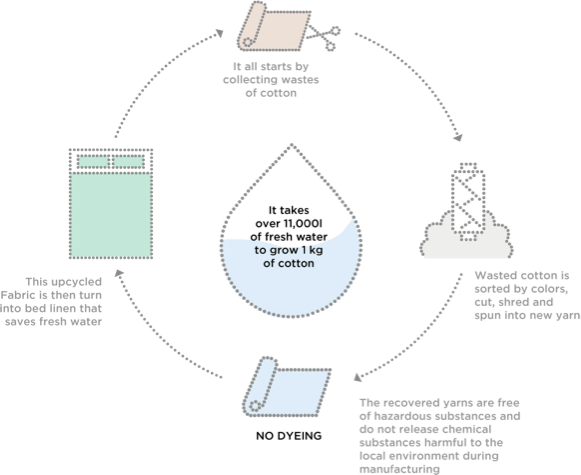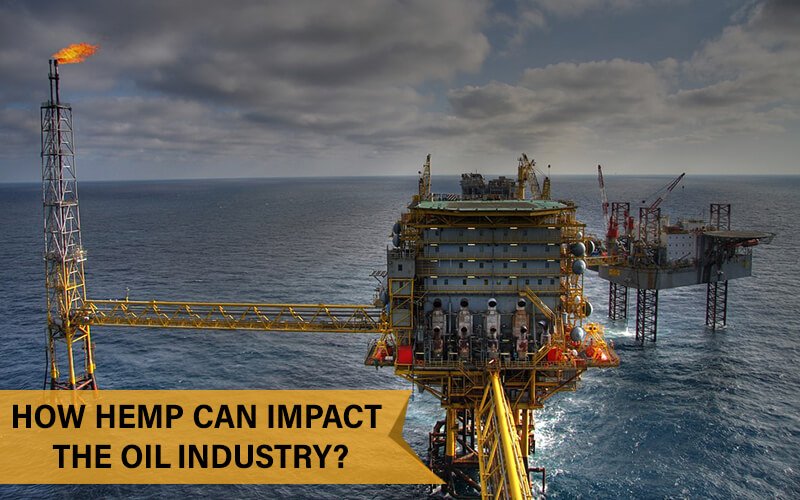Recycled Polyester vs. Recycled Cotton vs Hemp: Who Wins The Sustainability Race?
Recycled Polyester Vs. Recycled Cotton Vs Hemp: What’s Most Sustainable?
So, you’re finally jumping on the “Save the earth, reuse and recycle” brigade?
Well then, welcome!
We know what you might be thinking. What is a more sustainable option? Using recycled polyester? Recycled cotton or hemp?
Let us help you solve this dilemma through this blog.
Here will take you behind the scenes of how recycled polyester, cotton and hemp are sourced and produced into the final product.
And, of course, we will help you decide the safest and most environmental option among the three.
Ready? Let’s dive in.
What is Hemp Fabric?
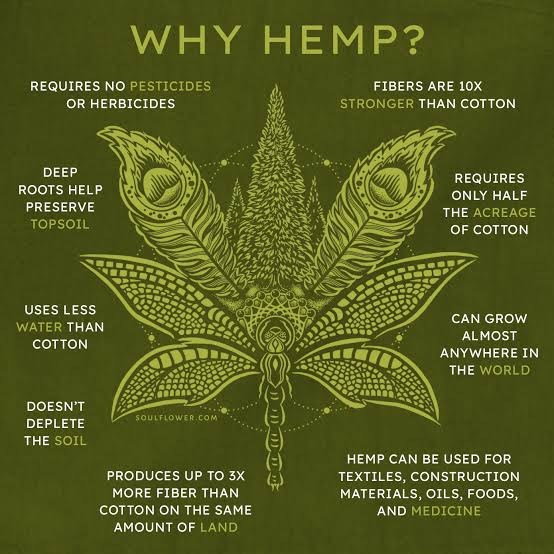
The first question everyone gets is What is Hemp? And is Most sustainable hemp fabric environmentally friendly ?
Hemp is a plant fiber similar to cotton but grows incredibly fast. It can be harvested as early as 3 months. Best of all, Hemp doesn’t rely on harmful chemicals and pesticides to grow and, in return, also adds nutrients to the soil.
If this is not the magic plant that the fashion industry desperately needs, then we don’t know what it is.
Because seriously? A crop that’s ready to harvest within 3 months without using chemicals, We’re sold!
Let’s learn more about this magic wonder crop called Hemp.
Benefits of Hemp
- Team Player: Hemp is a team player, folks. You can blend it with any other fiber and create your desired product!
It’s not a drama queen like other natural fibers. Better yet, cotton plus hemp is our favourite combo; you get the strength of hemp while keeping the soft feel of cotton.
- Durable: Do you know why the fast fashion industry is the world’s biggest enemy? It’s because those clothes don’t last long. One, or two wears and puff, they lose their charm, start tearing, or become unusable.
But hemp doesn’t have this drama. It’s one of the strongest natural fibers and is three times stronger than cotton. So, you can buy hemp clothing once and use it for more than a decade without tears.
- Natural Hypoallergenic and bacterial qualities: Only those with allergies or extra sensitive skin know the struggles of choosing the right clothing. And we can fully sympathies with you. After all, who wants an allergic reaction just because they wore clothes?
Not us! Moreover, if you are that lazy lad who doesn’t like to do laundry every day, don’t worry, Hemp antibacterial properties make sure your clothes don’t leave a Odor after a single use. Go ahead, wear it one more day; no one will notice.
Disadvantages of Hemp Fabric
- Not so color friendly – There’s a reason why the fast fashion industry stays miles away from Hemp. It’s not very color friendly. How will these brands sell their shiny, bright clothes without bright colors?
- Wrinkly – Another not-so-harmful downside of hemp is that it wrinkles quickly. We understand this can be an issue if you are in a professional industry where people only wear flat-ironed clothing.
What Is Recycled Cotton?
It is discarded cotton fabrics that are converted into cotton fibers. These fibers can then be reused in textile and fashion production.
But…where does the cotton used for recycling come from?
Recycled cotton has two primary sources:
- Post Industrial: These are the remnants of yarns, fibers and fabrics discarded after production.
- Post-consumer consumption: This includes garments, upholstery, or other household items whose cotton fibers would be reused.
However, the largest source of recycled cotton comes from post-production. This is because consumer products are hard to classify and reprocess due to the variety of colors involved, different materials used, and the rest of the raw materials and accessories included in the items.
Pros and Cons of Recycled Cotton
- Less water consumption: The amount of water needed to recycle cotton is much lesser than that is needed to produce virgin cotton.
- It is diverted from ending up in a landfill: Anything discarded has one destination – landfill. Recycling cotton prolongs this process by turning the cotton into a reusable product.
Cons of Recycled Cotton
- Lacks strength: Since recycled cotton lacks strength, the industry often blends it with durable fiber like polyester to add strength. And hence, we are back to square one!
- Cannot be recycled infinitely: Cotton is a very sensitive fiber, and thus recycling is limited.
- Doesn’t save much energy: The energy that’s saved by not producing virgin cotton will go into the collection of waste, transportation, recycling, and manufacturing. So, it ends up evenly.
What Is a Recycled Polyester?
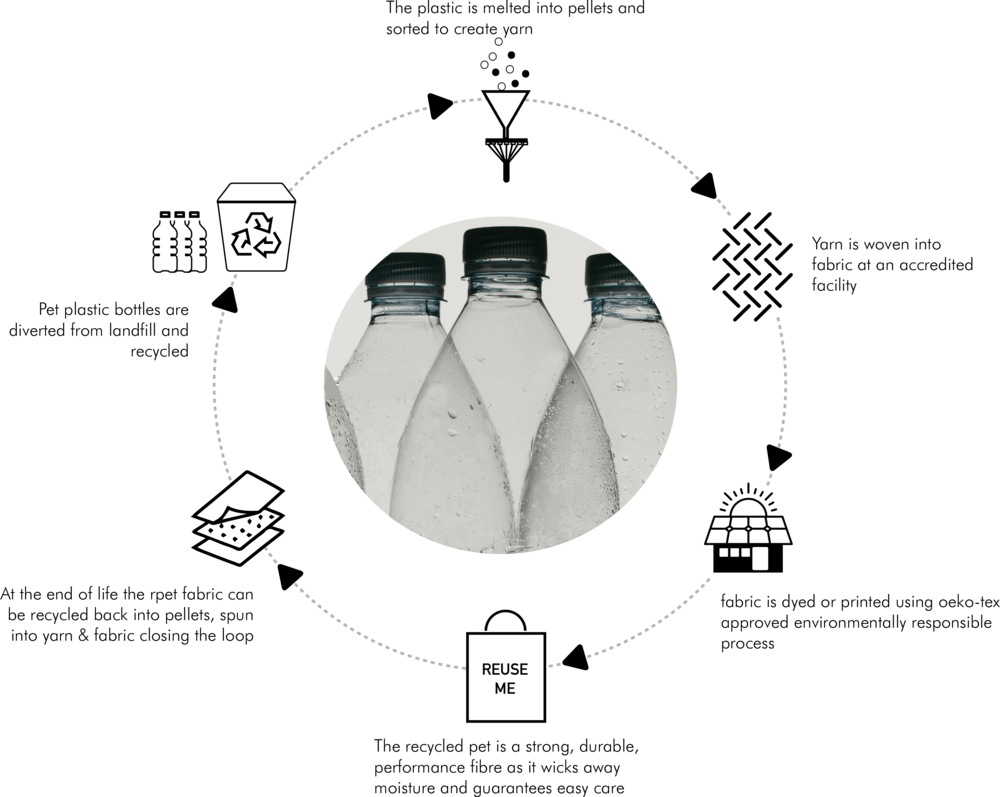
The world is loved by polyester fabric, considering its explosion in the past decade. According to Statista, polyester’s global production in 2020 reached a whopping 57.1 million metric tons!
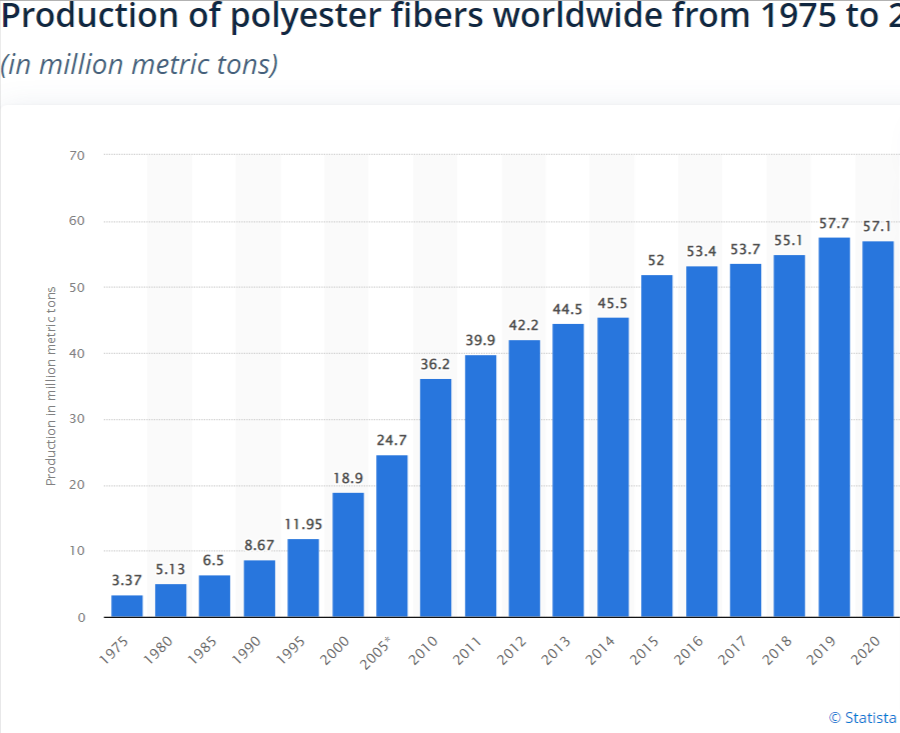
Statista Production of Polyester Fibers
Most people doesn’t think twice before buying polyester clothing. And it’s due to many reasons such as wrinkle resistance, cheaper and not to mention flexible!
But, then, it never dawned on them that polyester is essentially a PLASTIC.
Many of us are wearing recycled polyester thinking it’s saving the environment, but our bodies absorb harmful chemicals as the recycled polyester industry is wildly regulated!
So, next time you think of buying RPET fabrics, don’t forget to check for chemical content certification labels such as OEKO-TEX®, GOTS, or BLUESIGN®.
Pros of Recycled Polyester
- Save plastics from going into landfills. According to the NGO Ocean Conservancy, 8 million metric tons of plastic enter the ocean every year, on top of the estimated 150 million metric tons circulating in marine environments. So, recycled polyester is made from plastic, which saves at least a short portion of these plastics from ending up in landfills.
- Recycled Polyester is of similar quality as virgin PET – it’s great that recycled polyester is similar to virgin polyester. But the best thing is that it uses 59 percent less energy. This reduces our dependence on raw materials like petroleum.
Cons of Recycled Polyester
- Recycling is limited – Now, if you see, the majority of garments are not made from PET alone. They are mixed with other fibers. And hence, it becomes difficult to recycle these garments. Even with 100% polyester, recycling is lots of hassle.
- The end destination is the same: Another roadblock is that polyester cannot be recycled forever! It’s a myth that, unfortunately, many believe. No matter how much polyester we recycle, we know sooner or later, it will end up in landfills or oceans.
- Process itself is harmful to the environment! – To be turned into usable garments, the recycled plastic goes through a series of processes that are harmful to the environment. This includes dyeing, bleaching, etc.
- Are we forgetting microplastics? Although one can argue that recycling polyester can save plastic from reaching the oceans, we forget about microplastics. Polyester releases microplastics that makeup 100% of human debris on shorelines with each wash. Moreover, research states that each cycle of washing machines releases up to 60,000 microscopic plastic fibers.
| Fun Facts About Polyester: The first PET bottle was recycled in 1977 |
Are there chemicals in recycled clothes? Research Found 30+ Harmful Toxins And Chemicals!
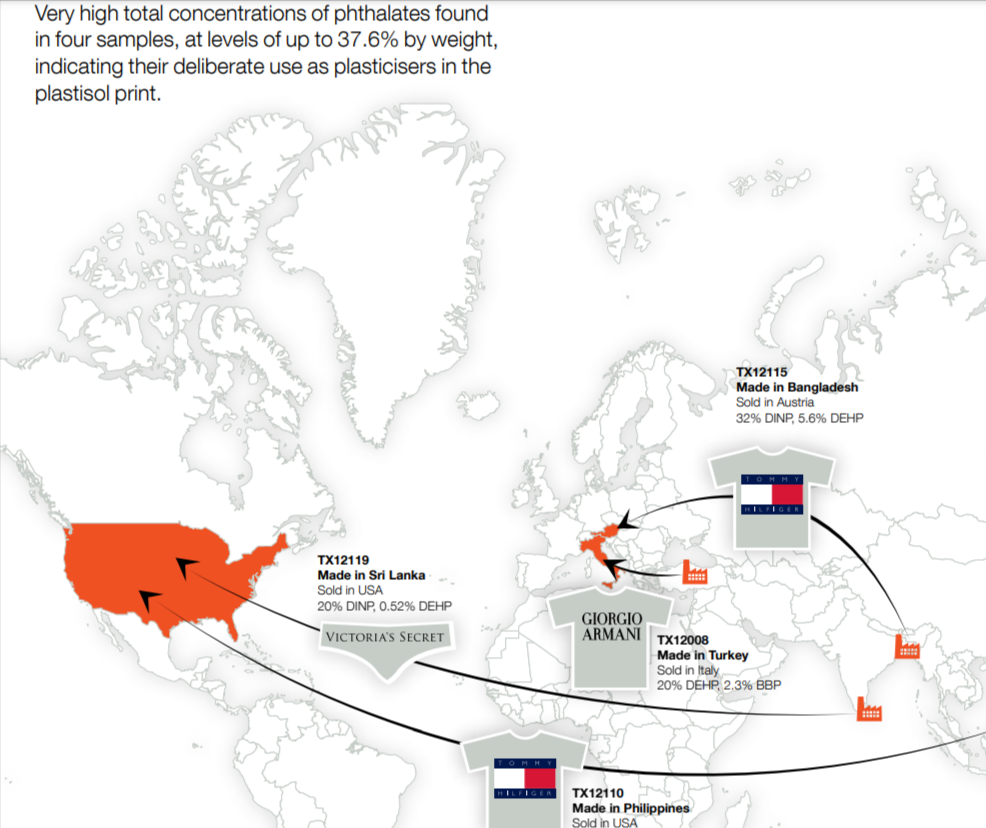
When we are using recycled polyester and cotton to save our planet, you might expect little to no chemicals.
Unfortunately, it’s the dark side of the fashion industry that many don’t accept. The textile industry uses tons of chemicals at every stage of production, including bleaching, dyeing, and making fibers.
However, even after these clothes reach the stores, these fabrics still contain many harmful chemicals that our skin absorbs.
Since our skin is the human body’s largest organ, these chemicals can bring unresolvable health issues without us knowing about them.
Greenpeace International commissioned research for their Detox Campaign to identify the most common chemicals used in the fashion industry.
The research also included the study of global brands like Levi’s, Zara, Armani etc. Here’s what we can take away from it:
- The chemicals used include high levels of toxic phthalates in four garments and cancer-causing amines from using certain azo dyes in two garments.
- NPEs were found in 89 garments.
All these chemicals should have been banned, considering their danger, but they aren’t. And this makes us question, “Do these brands even care about consumer safety?
Now you might ask, Can chemicals be washed out of clothes?. The short answer is no. It can wash out some toxins, but not all the chemicals.
| Facts Chemicals constitutes 27% of the weight of garments. For every 100,000 people, up to 110 kg of micro fibers is released into local waterways daily – This is equal to pollution caused by 15,000 plastic bags. Approximately 104 million barrels of oil are used for PET production each year – that’s 70 million barrels just to produce the virgin polyester used in fabrics. |
Recycled Polyester Vs Recycled Cotton Vs Hemp: Head-to-Head Comparison
| Hemp | Recycled Cotton | Recycled Polyester | |
| Water consumption | 2401 kilograms of water per kg of textile | 10 gallons per t-shirt | 200 liters of water |
| Is it biodegradable? | Yes, 100% biodegradable | Yes, if not used with polyester | No |
| Skin-friendly quotient | 100% skin-friendly | If manufactured well, recycled cotton is still a skin-friendly option. | Recycled polyester is not skin friendly since it absorbs sweat and sticks to the body. |
| Source | Hemp plant | Cotton fibres and clothes | Crude oil and plastic bottles. |
| Color Durability | Strong | Medium | Strong |
| Best for | Everyday wear | Casual clothing | Sportswear |
| Chemicals Used | Minimal to no chemicals used | Medium | High level chemicals used |
If Hemp is Eco Friendly and Good for Human Beings, Why Are We Using Cotton and Polyester?
One answer – Price.
You see, polyester and even cotton, in some cases, are a lot cheaper to produce than hemp.
Fashion brands, especially the fast fashion ones, want to make more profits, and polyester fits too well! Consumers also add to this problem by buying more polyester and cotton clothing.
Majority of us won’t need polyester in the first place unless you are an athlete or working in conditions that need a PPE.
In the end, it’s important to remember recycled polyester still releases microplastics that’s harmful for marine life.
But do you know why Hemp, the fastest-growing and the least water-eating fibre, is expensive to produce?
Let us tell you; these ancient laws banned the use of Hemp several decades ago in 1937 and still affect the whole hemp textile industry!
Because of these bans, many farmers don’t want to risk growing hemp. This ultimately leads to a very controlled production of hemp.
Thus, the production costs are expensive compared to cotton, which is widely grown, and polyester, the fashion world’s favourite invention.
According to the above details we can easily understand Recycled Polyester Vs. Cotton Vs Hemp: What’s Most Sustainable?
Sustainability Starts With You!
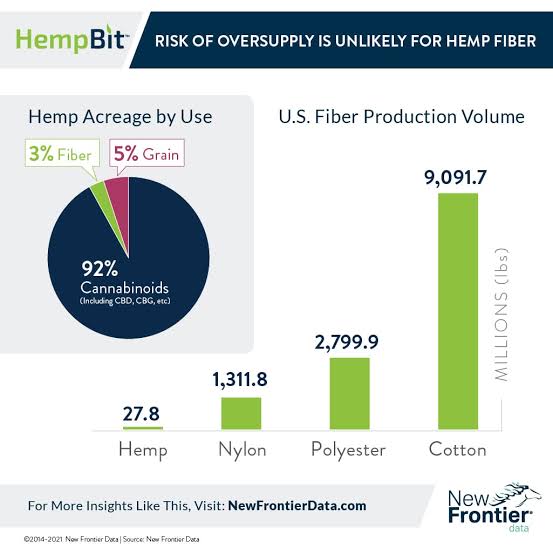
Consumers hold power in the fashion industry. Consumers buy fast-fashion clothes if fast fashion is one of the fastest-growing industries.
It is our buying power that’s making these fashion brands powerful! But as you saw above, recycling cotton and polyester doesn’t end the fashion industry’s woes!
In the end, the reality is that polyester will never degrade. Recycling will just prolong it from going to the ocean and landfills.
That’s where hemp is an environmentally friendly alternative to toxins filled textiles. Each part of the hemp plant can be used for a different purpose. It’s natural, biodegradable and grows too fast! The trios that the fashion industry desperately needs.
But it starts with you. It starts with consumers buying more hemp textiles and fashion clothes. Join Hemp Foundation in its drive to make hemp one of the top textiles for the fashion industry. Because without the people’s support, hemp would forever stay as an untouchable fabric, a luxury many could not afford.

